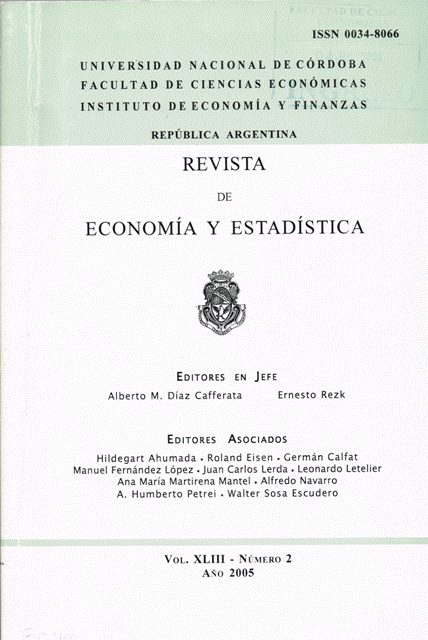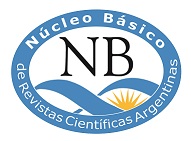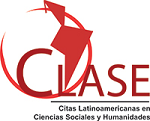Entrevista a Víctor Jorge Elías
DOI:
https://doi.org/10.55444/2451.7321.2005.v43.n2.3816Keywords:
entrevista, Víctor Jorge ElíasAbstract
Víctor Elías nació en Tucumán, el 21 de julio de 1937. Estudió economía en la Universidad de Chicago, donde se doctoró en 1969. A partir de 1965, en la Universidad Nacional de Tucumán (UNT) enseñó econometría, teoría de los precios y desarrollo económico. También en la UNT gerenció programas de posgrado. Fue profesor o investigador visitante en las universidades Católica de Chile, Bahía (Brasil), Stanford, Harvard, de San Andrés y en el Instituto Torcuato Di Tella. Presidió en dos oportunidades la Asociación Argentina de Economía Política. Es “economista de un sólo tema”: la denominada contabilidad del crecimiento (la culminación de su esfuerzo en la materia está contenida en Sources of Growth, International Center for Economic Growth, 1992). No se puede explicar que el Departamento de Economía de la UNT haya sido, durante décadas, uno de los mejores del país, sin colocar a Elías en un lugar clave de dicha explicación. El “turco” es inteligente, muy trabajador, increíblemente rápido para las negociaciones, y muy querido por sus pares y ex alumnos. Tiene sentido del humor, que captan quienes saben algo de teoría económica y están atentos cuando él habla. Por todo lo cual, fue muy fácil elegir con quien iniciar la presente serie de entrevistas.
La conversación comenzó personalmente en Buenos Aires, el 21 de abril de 2005, y continuó a través del correo electrónico.
Downloads
Downloads
Published
Issue
Section
License
Copyright (c) 2005 Juan Carlos De Pablo

This work is licensed under a Creative Commons Attribution-NonCommercial-NoDerivatives 4.0 International License.
Authors who have publications with this journal agree to the following terms:
Authors retain their copyright and grant the journal the right of first publication of their work, which is simultaneously subject to the Creative Commons Attribution-NonCommercial-NoDerivatives 4.0 International License that allows third parties to share the work provided that its author and first publication in this journal are indicated.
Authors may adopt other non-exclusive licensing arrangements for distribution of the published version of the work (e.g. depositing it in an institutional telematic archive or publishing it in a monographic volume) as long as the initial publication in this journal is indicated.
Authors are allowed and encouraged to disseminate their work via the Internet (e.g. in institutional telematic archives or on their website) before and during the submission process, which can lead to interesting exchanges and increase citations of the published work. (See The Open Access Effect)










